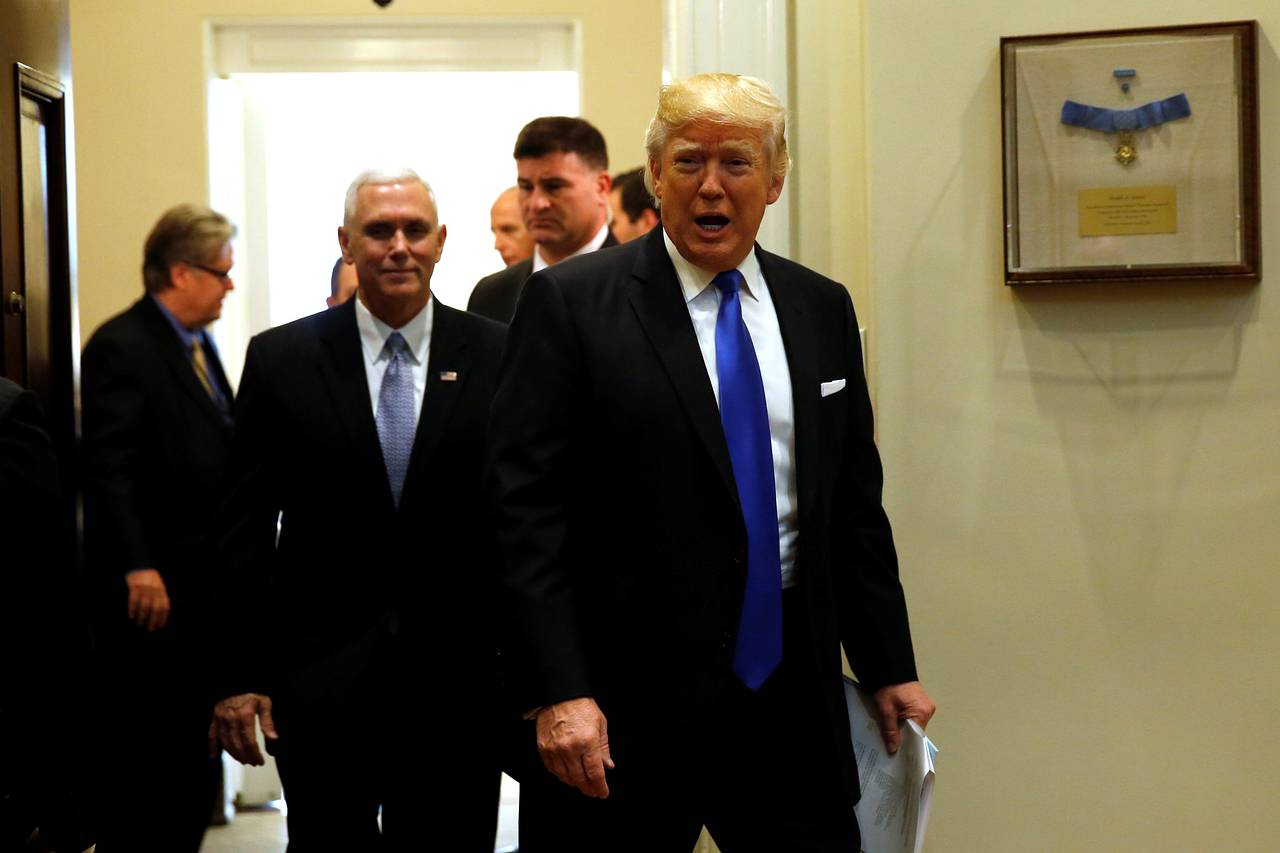In recent weeks, the political landscape in the United States has been characterized by increasing divisions, particularly within the Republican Party. As various factions vie for influence and direction, former President Donald Trump has taken on the unexpected role of mediator, attempting to bridge the gaps between differing viewpoints. This development has raised eyebrows and sparked discussions about Trump’s influence on contemporary politics, his relationships with party members, and the potential consequences of his involvement.
Trump’s emergence as a reluctant referee comes at a time when the Republican Party is grappling with internal conflicts. The party is divided between traditional conservatives, who prioritize fiscal responsibility and limited government, and a more populist wing that advocates for a broader range of social issues and a more aggressive political stance. This schism has manifested in heated debates over policy priorities and electoral strategies, leading to a sense of urgency among party leaders to find common ground.
In response to these internal tensions, Trump has called for unity among party members, emphasizing the importance of presenting a cohesive front as the 2024 presidential election approaches. His recent statements suggest a desire to mitigate infighting and promote collaboration among factions that have historically struggled to align on key issues. By positioning himself as a mediator, Trump aims to harness his significant influence within the party to foster dialogue and cooperation.
The reactions to Trump’s mediating efforts have been mixed. Some party members welcome his involvement, viewing it as a necessary step to ensure that the Republican Party remains competitive in upcoming elections. They argue that Trump’s popularity among the party’s base can help rally support and galvanize voters who may feel disillusioned by the current state of affairs. In this context, his role as a referee could be seen as a strategic move to consolidate power and maintain electoral viability.
On the other hand, there are those within the party who remain skeptical of Trump’s intentions. Critics argue that his involvement could exacerbate divisions rather than heal them. They express concerns that Trump’s approach may prioritize loyalty over policy substance, potentially sidelining important discussions about the party’s future direction. This skepticism is fueled by the contentious nature of Trump’s presidency, during which he often prioritized personal loyalty and factionalism over party unity.
Moreover, Trump’s mediating role is not limited to the Republican Party. He has also weighed in on broader political disputes, including tensions between Democrats and Republicans in Congress. His statements have often sought to frame the narrative around bipartisanship, urging leaders from both parties to work together on critical issues such as infrastructure, healthcare, and national security. This positioning has garnered attention from political analysts, who view it as an attempt to reclaim relevance in a rapidly changing political environment.
The implications of Trump’s mediating efforts extend beyond party dynamics. As the 2024 election approaches, the decisions made by party leaders and candidates will have lasting effects on the political landscape in the United States. If Trump’s influence succeeds in fostering unity within the Republican Party, it could lead to a more organized and effective campaign against the Democratic Party. Conversely, if divisions persist, the party may struggle to present a unified message, potentially undermining its chances in key races.
In conclusion, Donald Trump’s role as a reluctant referee in the current political climate reflects the complexities of American politics today. As he navigates the tensions within the Republican Party and seeks to mediate broader political disputes, the outcomes of his efforts remain uncertain. The reactions from party members and the potential impact on the 2024 election will be closely monitored as political dynamics continue to evolve. Ultimately, Trump’s ability to unite or further divide the party will play a crucial role in shaping the future of American politics.


